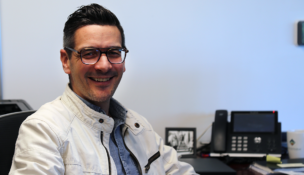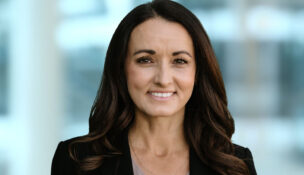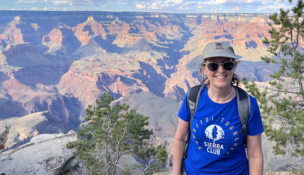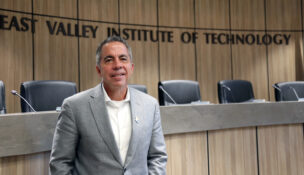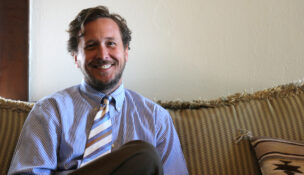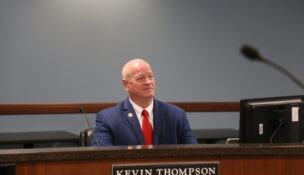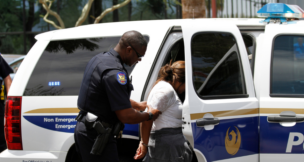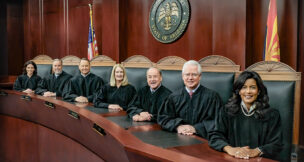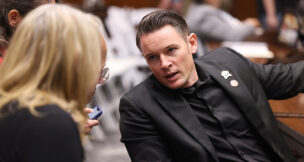Karla Phillips-Krivickas: Arizona’s champion of education
Kiera Riley Arizona Capitol Times//September 7, 2025//
Karla Phillips-Krivickas: Arizona’s champion of education
Kiera Riley Arizona Capitol Times//September 7, 2025//
Karla Phillips-Krivickas has seen it all. And from all her roles — from legislative to executive policy staff, to the Department of Education, to national education nonprofits, to the State Board of Education and finally to Champions for Kids, an advocacy organization aimed at disability policy, Phillips-Krivickas ensures every person, every county is accounted for.
Answers have been slightly edited for clarity.
What brought you to public policy? To education?
I came here to get my masters in public administration. I hadn’t lived here long. I was not politically involved at all. I heard Lisa Graham Keegan speak. I’ll never forget. She used to talk about schools getting it done despite the odds. She literally lit a fire in me. I marched down to ASU and I asked about changing my major.
I realized education is the basis for everything.
Where did you go from there?
I grew from there. I got a job as the majority policy advisor at the House with Jim Weiers. And then I left for my dream job, which was to be an ASU’s lobbyist.
I thought I’d stay there forever. I mean, I thought I was going to do a PHD, and my son would go with free tuition, that whole thing. Then God had other plans. I was only there for about a year, and then Gov. Napolitano left, Jan Brewer became governor overnight and I got a call and within 24 hours I was governor’s education policy director. It was an insane transition.
What did you learn working in the executive branch? How did it differ from the Legislature?
I underestimated the difference, and I learned a lot there. When you’re in the Legislature, the bill’s already moving through so many different committees and processes, and there’s always a series of checks and balances and constant review.
I’ll never forget the first day we were doing bill signing, I literally was hyperventilating. You’re realizing that you are literally the last person to review this before it becomes a law. It’s the last stop in the little bill’s journey.
Were there any differences distinct to education?
Almost all of the policy advisors on the ninth floor had agencies. The governor has very little impact on education. None of the agencies report to her. The regents don’t report to her, the Department of Education doesn’t report to her. There’s no education director on the department’s cabinet. It’s unique to Arizona, but it also made my role much different because I didn’t have that string to pull.
It wasn’t like ‘thou shalt do this’ and they go do it. I don’t think many people outside of the weeds understand it.
The government was not divided by party at that time, but what did you see as the divisions and difficulties in your role with the governor’s office?
We talk about divided government, but the division that always fascinated me was the division between the legislature and the executive. That’s what I do so I’m kind of a geek that way, but people underestimate that.
Not to sound hokey, but that’s what the framers of our Constitution intended with our branches of government. But sometimes you have to be in it to really get it.
When you’re on the legislative side, you’re involved in that process every step of the way. But when you get to the governor’s office, it frustrates everybody, but the governor’s not going to weigh in, for lots of good reasons.
I was used to being in meetings, drafting amendments. Then it was, ‘Sorry guys, I’ll tell you when it gets here.’
How have you approached coalition and compromise in your roles?
For me, it’s personal. I want to be known as fair, kind and professional. We’ll disagree, but you can work with me. And I’m so proud of all the friendships I’ve had with my Democrat friends. We disagree, but at the end of the day, we know we’re going to work together. And we might just grab a coffee or beer afterwards and laugh about it.
I think when you’re on staff, it’s a very different perspective than when you’re elected. There was Democrat staff I used to work with all the time that I loved, and we used to joke that if they just locked us in a room with some beer and pizza, we could solve these problems. We could compromise. When you’re elected it’s a lot harder to compromise.
How did you approach advising lawmakers, or the governor, or any elected official?
My approach with policymakers is — it’s not my agenda. They are elected. My job is to ensure that my elected officials are informed — they have access to both sides of the issue, all relevant information to consider, and everything they need to make an informed decision.
Of course, nine times out of 10 they hire me for my opinion, and I’ll tell them. But I still feel very strongly that that’s the role of staff is to make sure that they know everything they need to know, policy and political wise, like if you do this, then this person is going to be mad.
Next, you went to the Department of Education. What did you learn there?
I was a special assistant to Superintendent Huppenthal. I was really hired for one specific reason: to shepherd our state’s No Child Left Behind program.
The application — we had to cover standards, state assessments, teacher evaluations, data systems. The fun part of the job was the hardest: stakeholder meetings. We needed documentation to prove that we had conducted all these stakeholder meetings. It wasn’t perfunctory. I literally had to meet with the Secretary of Education and go through a list of meetings.
I visited all fifteen counties, collaborated with the county school superintendents, and arranged meetings. I also presented our waiver to nearly every corner of the state. It was so awesome.
One of the speakers I worked for was Jake Flake. He was the greatest man I’ve ever known, besides my husband. He made me promise, the last thing he said to me before he died was that I would never forget rural Arizona.
I’ll never forget driving through his district for that meeting, and all I could think about was how many times he, along with all those great legislators, had made countless hours-long drives back and forth to represent their people.
What did you take away from your experience around the state?
These are things that still drive me. We were in Yavapai County. It was the biggest one I had done. I’m nervous. I go through my spiel, and this woman raises her hand. She had this question — she said I have an email question. She said I don’t even know what emails to open from the department because I get so many. Remember, the No Child Left Behind waiver covered almost every topic in there. And that was when I really learned and still never forget that — we always think about these big districts, there are districts out there where the superintendent is also the principal, and is also the Title I director. They wear all those hats. That woman received so many emails from ADE because she wore all those hats. I think about that woman all the time when we’re crafting policy. You can’t assume every school district has a transitional director, a SPED director, and people who oversee these roles. There are districts out there where that one woman is also shoveling the snow, and driving the bus to the football games and everything else.
When we’re writing laws and crafting policy, we have to remember — I call them the one man shows.
How did your focus on special education policy come about?
Meanwhile, on that journey, I gave birth to some great kids. My son with ADD, and my daughter with autism. And it just became so clear to me that nobody was advocating for our kids.
What I try to tell people is that I’m not just trying to do special education. I want to make sure students with disabilities are included. No matter what the topic is, are we thinking about students with disabilities?
Now, with your work on the State Board of Education, in the position of a policy maker, how has that shaped your approach to issues?
What I’m learning is that even when you’re on the State Board of Education, which is a big deal and I’m blessed and honored to serve. It’s not that easy to make dramatic changes overnight. It’s hard to shift things.
What do you want to accomplish before your term is up?
I have my BHAG. My big hairy audacious goal. Before I leave, I want to at least tee up a conversation on teacher certification. Because right now we have special ed certification and general ed certification. I don’t think that model fits anybody, yeah, because most kids with disabilities are in regular classes. They’re not just in those special classes down the hall with those special teachers. So I’m in the process of researching and trying to figure out what we can do. I feel like we just continue to segregate. Oh, well, she’s special. I want to figure out how to tear down that wall.
Now in your role with Arizona Champions, how do you hope to change people’s perspectives?
Every child deserves high expectations. We can’t give up on any child. Every child has potential. We have to be more flexible on how kids learn, how they demonstrate learning. We have to stop thinking that there’s like this, I call it the mythical average kid.
It’s really changing people’s perception, because those kids are in every classroom in America, including private schools quite frankly. There’s kids who are bored, frustrated, undiagnosed, underresourced in every classroom. When I’m looking at big policies at the state board, in my mind, that’s what I’m thinking of, is, who have we not identified? Who are we still missing?







